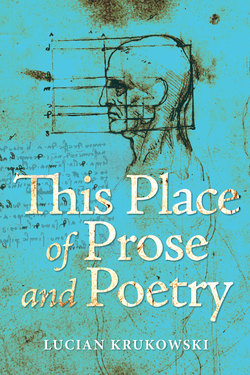Читать книгу This Place of Prose and Poetry - Lucian Krukowski - Страница 21
На сайте Литреса книга снята с продажи.
POETRY, PROSE, AND TRUTH
ОглавлениеCan poetry tell the truth (about the world)? Sometimes it can by happenstance—as when a Pelican’s bill is too engorged for the bird to fly—or whether the comet at tomorrow’s dusk will illuminate the sky. But these are only empirical truths—even if fancifully put. Perhaps the more salient question is: Does poetry contain its own—special—truth? Poetry—it can first be said—wants the poet to see the world as truthfully poetical.
But it also has been said that poetry cannot be sure it truly says what the poet means to say—nor can poets truly know what it is they mean to say. The poem says what it says—no guarantee needed of “meanings” that transfer back to poets—and none from poets, however attractive they may be, to tell their readers.
A poem is easier to end than prose, for the descant of historical memories and the knockings of imported common-sense, signal the poet that it, the poem, now has reached its end. Some (those boors) might very well say that it could have ended sooner. Long poems—after Dante and Milton—that tell large stories and end at a greater distance than these-days poems do, are difficult for us these days to read.
But prose, too, has its problems. It can be deadly dull because it usually is too long—and even when short and to the point, its reading is tainted by the drowsy anxiety of neglected chores. Most things, these days, move faster than their readings, and so, as paragraphs grind inexorably on, prose writers worry—about what they, back then, were saying.
But however the readings come at you—in script or on the screen— few of us now have the fortitude to slog through others’ memory games—especially when the authors say that what they purport to show-and-tell, in the fickle here-and-now, fast becoming there-and-then, is really about us all, dear friends, in the spaces allocated for tonight’s frolic—which, as we also know, took place a while ago.
Mind-brain identity need not be taken as a denial of mind-body duality—much less a rejection of the soul-mind-body trinity. The question is really about whether there can be an achievable completeness of explanation—specifically, the notion that explanation, when systematically pursued, and given good will and ample time, will merge with the subject of explanation—namely, itself.
If mind and brain indeed could merge, the explanations that define the circumstances of their union, would, to my mind, (always) have to face the charge of question-begging—of ignoring what other stuff this particular merger needs to set aside—ignore—for its own success. The soul, however, is pleased by incompleteness:
Whether one trudges along the trail to reach the final pass, or one climbs the ladder rung by rung until it can be kicked away, incompleteness contains the promise of a coming together of anxiety and actuality. Coming when? When completeness is all—and everything—there is. (Before something else shows up.)
Explanations all require a supervenience which acts to support them by gathering past memories, present descriptions, family attitudes, forebodings about the future—as well as accounts of pain and pleasure. These do not supply “a” meaning, but rather precede one—by presenting an arena of shifting interests in things that we, from time to time, notice enough to want to explain—to give meanings to.
This sounds slippery, I admit. How does one do explaining without clearly circumscribing the landscape of concern? How do we delimit the aggregate of possibilities, out of all we can surmise and dream, to what it is we want to explain—and to what we are explaining? (These latter two are not always the same).
Art and its practitioners have had little problem with the lack of limits. Both exclusion and inclusion signal a change in style—thereby revealing the new attentions that configurate a given historical time. Change in art is a signal that extant efforts are exhausted—not devalued—not corrected—only done with.
Philosophy, however, has a different take on historical succession. Systematicity is an exercise in philosophical greed. We attempt, in explanation, to correct the errors in the theories we have discarded. Philosophy, given Hegel’s prodding, has had hopes for a theory of everything; but these hopes are as much metaphysical (perhaps aesthetic) as they are potentially demonstrations of how the world (really) is.
Art wants a world; philosophy wants the world. But philosophy also has a habit of avoiding the part of the world that is not susceptible to accepted modes of explanation. Art, in contrast, is irreverent, wanting and yet dreading the incommensurable that becomes actual, while offering itself seasonally (sacrificially) for a new mode of appreciation and criticism. Neither art nor philosophy should be vocations. Arting, in its practice, has no way to win or lose—only to be (contextually) better or worse. Philosophy depends too much on its seductive powers when it gives the sources of its arguments the gloss of reason, truth, utility (or some current alternative).
There is, of course, the ancient quarrel between art and philosophy, between appearance and reality, truth and feeling, the world as it is and as it is perceived.
This is a quarrel that will not be resolved. Nor should we, on pain of boredom, want it to be. Accepting the inevitability of this quarrel is an insight reflecting the ancient wisdom that not all things can be brought together, that human existence is not a whole—rather, it is stitched, raveled and unraveled, as on a multi-generational tapestry-in-process, through the efforts of its successive (and often contrary) weavers.
